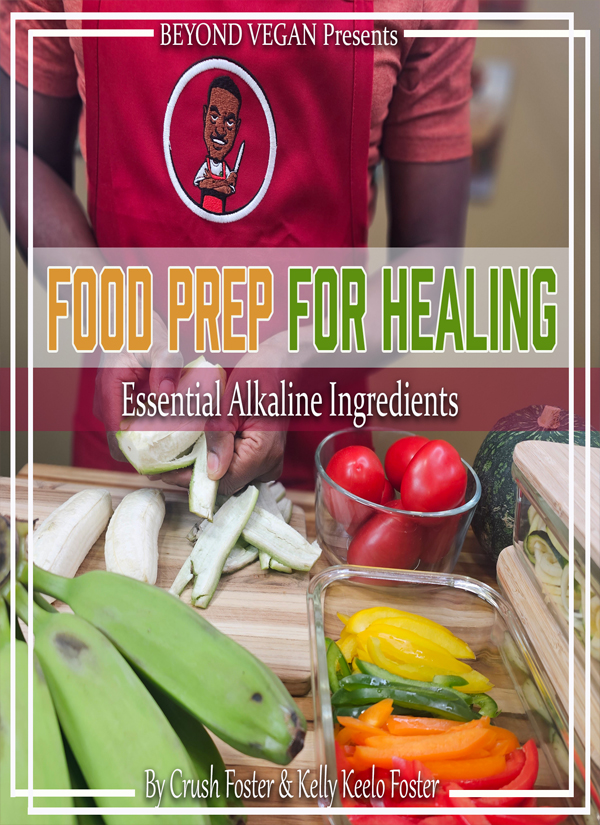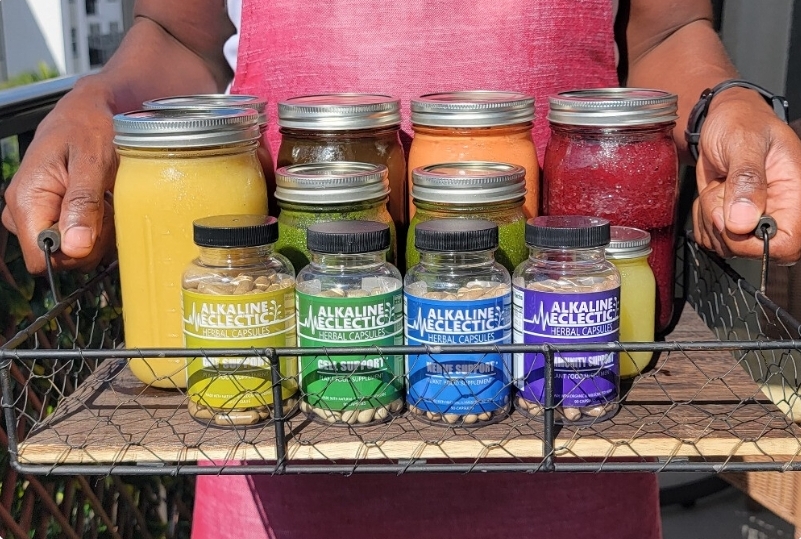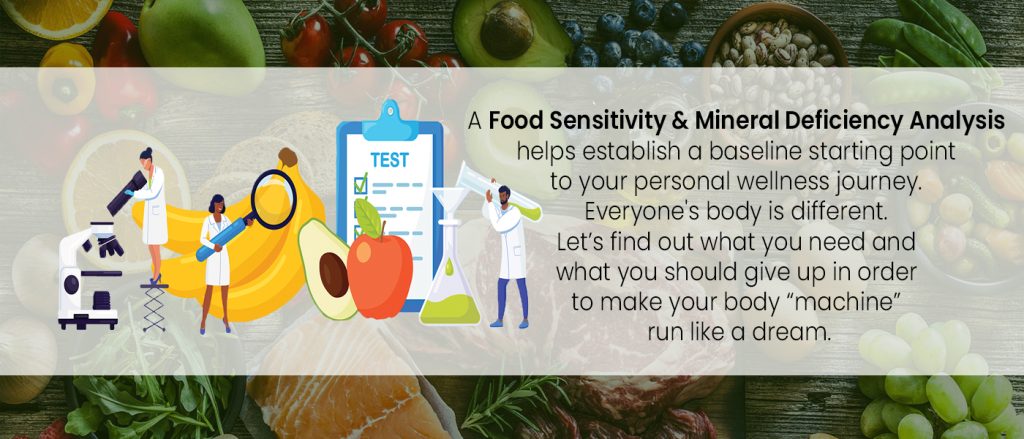Your cart is currently empty!
Alkaline Eating Made Simple: Easy and Tasty Recipes to Boost Your Health
I. Introduction
- – Explanation of the significance of alkaline diet
- – Brief overview of the benefits of alkaline eating
II. What is an Alkaline Diet?
- – Definition and explanation of an alkaline diet
- – Explanation of pH levels in the body
III. Benefits of an Alkaline Diet
- – Overview of the health benefits associated with an alkaline diet
IV. Alkaline Foods
- – List of alkaline foods
- – Explanation of how to incorporate them into your diet
V. Alkaline Recipes
- – Introduction to alkaline recipes
- – Examples of easy and tasty alkaline recipes
VI. Supplements for Alkaline Eating
- – Explanation of supplements that can aid in alkaline eating
VII. Tips for Alkaline Eating
- – Practical tips for incorporating alkaline eating into your daily routine
- – Benefits of meal prepping
VIII. Conclusion
- – Recap of the importance of alkaline eating
- – Encouragement to try alkaline recipes and supplements to improve health and wellness.
Are you looking to boost your health and wellness with a simple diet change? Alkaline recipes may be just what you need. By incorporating nutrient-dense, alkaline ingredients into your daily meals, you can promote better digestion, clearer skin, and reduced inflammation. In this blog post, we’ll explore the basics of an alkaline diet and provide easy and tasty recipes to get started on your journey towards optimal health.

What are Alkaline Recipes?
Alkaline recipes are meals that contain ingredients that promote a more alkaline environment in your body, balancing the high levels of acid. These recipes can be delicious and satisfying while providing various health benefits such as increased energy and better digestion. Some of the best alkaline breakfast options include smoothies with leafy greens or rolled kamut with nuts and fruits, but there are plenty of other tasty meal ideas to explore.
Alkaline recipes can increase your energy, aid digestion and balance acidity levels in the body.
In addition to incorporating alkaline foods into your diet, it’s also important to avoid highly acidic foods like processed meats, caffeine, alcohol, and dairy products. With some creativity in the kitchen and an understanding of which ingredients are most beneficial for you on an alkaline diet, you can enjoy flavorful meals that support both your taste buds and overall wellness.
Understanding the pH Scale
pH is a measurement of how acidic or alkaline something is. Our body’s pH level can have a significant impact on our health, affecting everything from digestion to energy levels. By maintaining an optimal pH balance, we can support our immune system and prevent illness.
Measuring your body’s pH level is easy and inexpensive – simply use a pH test strip to check the acidity or alkalinity of your saliva or urine. Ideally, you want your body to be slightly alkaline with a pH between 7.35-7.45.
Understanding the difference between acidic and alkaline foods is also crucial for achieving optimal health. While some acids are important for our digestive system, excess consumption of acid-forming foods such as processed meats and sugary drinks can lead to inflammation in the body. On the other hand, incorporating more delicious alkaline recipes into your diet such as fresh vegetables and plant-based proteins can help reduce inflammation and promote overall wellness.
Benefits of an Alkaline Diet
An alkaline diet can offer numerous benefits to your health and wellness. By reducing inflammation in the body, this type of diet can help alleviate symptoms associated with chronic conditions such as arthritis, asthma, and allergies. Additionally, an alkaline diet may boost immunity and reduce the risk of illnesses by promoting a healthy balance of gut bacteria through increased consumption of fruits and vegetables.
Improving digestion and gut health is another benefit that comes from following an alkaline diet. By reducing acid-forming foods like processed meats, caffeine, alcohol, and sugar – which can strain your digestive system- you’ll create room for more delicious alternatives like fresh fruits or young coconut for breakfast!
Foods to Eat on an Alkaline Diet
Leafy greens are some of the best foods to eat on an alkaline diet. Not only are they packed with essential vitamins and minerals, but they also help to neutralize acid in the body. Kale, watercress, and dandelion greens are all delicious options that can be eaten in salads or added to smoothies for a nutrient-packed breakfast.
Super-foods like sesame seeds, quinoa, and avocado are another great addition to any alkaline diet. These foods contain healthy fats and protein while also being low in acid-forming properties. Adding these superfoods into your meals will not only make them more delicious but will also provide you with long-lasting energy throughout the day.
Fruits such as berries, watermelon, cantaloupe etc., are wonderful snacks that can satisfy your sweet tooth while still being good for you. They’re low in acidity and high in minerals like copper which helps boost immunity levels by fighting off free radicals within our bodies. Eating these fruits regularly is a smart way to ensure that you’re getting all of the necessary vitamins without compromising taste!
Foods to Avoid on an Alkaline Diet
Processed foods high in sugar or salt, animal products high in saturated fat like red meat, and caffeinated beverages like coffee and black tea should be avoided on an alkaline diet. These acidic foods can disrupt the pH balance of the body, leading to inflammation and other health issues. Instead, focus on incorporating fresh vegetables and fruits into your meals for the best results.
While breakfast is often thought of as a meal heavy in animal products like eggs or bacon, there are plenty of delicious alkaline options available. Try starting your day with a smoothie made from arugula, kale, cucumber, and ginger for a refreshing start to your morning. When it comes to staying on track with an alkaline diet, small swaps can make all the difference.
Tips for Incorporating Alkaline Recipes into Your Daily Diet
Incorporating alkaline recipes into your daily diet can seem daunting, but it doesn’t have to be. Start with small changes like swapping out acidic condiments for healthier options such as lemon juice or apple cider vinegar. These simple swaps will gradually transform the pH balance of your body and improve overall health.
Planning your meals ahead is another key factor in incorporating alkaline recipes into your daily diet. Make a grocery list that includes plenty of alkaline-forming foods such as leafy greens, fruits, and vegetables. Batch cook meals on the weekends to make weekday meal prep more manageable and less stressful. By planning ahead, you’ll be able to create delicious meals that support an alkaline lifestyle without feeling overwhelmed or deprived.
Start with Small Changes
Making small changes to your diet can have a big impact on your health and wellness. Swap out acidic beverages like soda for alkaline water or herbal tea to reduce inflammation in the body and promote better digestion. Adding more leafy greens to your meals is an easy way to increase nutrient intake and improve overall alkalinity.
Processed snacks are often high in sugar, salt, and unhealthy fats. Instead of reaching for these, opt for fresh fruits and veggies as a snack option. You’ll feel fuller longer without the negative side effects of processed foods, which can include weight gain, mood swings, and chronic disease.
By making these simple swaps you’ll be well on your way towards an alkaline lifestyle that supports optimal health. Remember that progress takes time so don’t worry about perfection – every small change counts!
Plan Your Meals Ahead
Batch cooking alkaline meals on the weekends is a great way to simplify your weekday lunches. Preparing large batches of quinoa, roasted vegetables and lean proteins like chicken or fish can save you time and money. Simply portion out your meals into containers for easy grab-and-go options throughout the week.
Creating a grocery list based on alkaline ingredients is another helpful tip to stick to your healthy eating goals. Load up on plenty of fresh produce such as leafy greens, avocados, bell peppers, and cucumbers. In addition, go for whole grains like brown rice or quinoa instead of processed carbs such as white bread or pasta.
If you’re always in a rush in the mornings but want something nutritious to start off your day then prep smoothie ingredients ahead of time! Freeze sliced bananas, berries or spinach leaves into individual portions that are easy to blend up with almond milk or coconut water in just minutes each morning. Alkaline eating doesn’t have to be complicated – these simple tips will help make it an enjoyable part of your daily routine!
Get Creative with Alkaline Recipes
Try getting creative with alkaline recipes to add variety to your meals and support your health journey. Alkalizing foods like kale, cucumber, and avocado can help balance your body’s pH levels. Here are some ideas to inspire you:
- Whip up new dishes featuring alkaline ingredients like a kale salad with avocado dressing or cucumber soup.
- Make homemade salad dressings using tahinni butter or key lime juice as a base for added flavor and nutrition.
- Swap traditional pasta noodles in classic dishes for spiralized vegetables such as zucchini or summer squash.
Experimenting with these simple steps can lead to big changes in the way you feel and approach healthy eating.

Alkaline Recipes to Try
Elevate your health with these delicious alkaline recipes! Try our creamy avocado and cucumber salad for a refreshing lunch or whip up some zucchini noodles with homemade pesto for dinner. With plenty of fruits, vegetables and nutrient-rich ingredients to choose from, alkaline eating doesn’t have to be complicated or bland. Give your body the nourishment it deserves by incorporating these simple yet tasty recipes into your diet.
Looking for a healthy snack option? Try our almond butter energy balls – packed full of protein and fiber to keep you feeling satisfied throughout the day. Or indulge in our gluten-free blueberry pancakes made with oat flour and coconut milk – a guilt-free treat that’s both delicious and nutritious. These alkaline recipes will not only support your body’s natural pH balance but also provide essential vitamins, minerals and antioxidants for optimal wellness.
Supplements to Support an Alkaline Diet
To support an alkaline diet, there are a few supplements that can be helpful. Multivitamins can provide the necessary vitamins and minerals to support overall health while on an alkaline diet. Probiotics can also aid in digestion and improve gut health, which is essential for maintaining proper pH levels in the body.
In addition to supplements, drinking alkaline water can help neutralize acid in the body and restore balance. It’s important to incorporate these supplements into your daily routine alongside delicious alkaline recipes for optimal results. With some simple adjustments and additions, achieving an alkaline lifestyle doesn’t have to be complicated or daunting.
Multivitamins
Multivitamins play a crucial role in maintaining a healthy alkaline diet. They can help fill the gaps in your nutrient intake and promote overall wellness. Here are some top recommended multivitamin supplements for an alkaline diet:
- Alkaline Eclectic Nerve Support for Men/Women: A whole food-based multi-mineral that contains alkaline herbs and cell foods.
- Alkaline Eclectic Elderberry Tea for Men/Women: A selection of natural sambcus, this supplement provides essential minerals to support energy, immunity, and bone health.
- Cell Support Women’s Daily/Men’s Daily: Non-GMO verified multi-minerals that include organic herbs to support optimal health.
When choosing a supplement, it is important to consider your individual needs. Look for products that cater to your gender, age group, dietary restrictions or preferences. Consult with a healthcare professional before starting any new supplements regimen.
By incorporating high-quality minerals into our daily routine along with our tasty alkaline recipes , you can take control of your health journey and enjoy long-lasting benefits!
Probiotics
Probiotics can provide immense benefits in maintaining the pH balance of the body for those who have an immediately acidic diet. In lieu of diet change they can be necessary to promote a thriving gut microbiome, which is crucial for overall health and wellness. Incorporating nutrient-rich foods into an alkaline diet is highly recommended. Water retained vegetables such as zucchini, cucumber and spaghetti squash are excellent sources of fiber that support gut health.
While it’s always best to try getting your nutrients from whole foods first, sometimes we need additional supplementation. If you’re looking to improve gut health with supplements, studies suggest that Lactobacillus acidophilus and Bifidobacterium lactis may be particularly helpful for promoting digestive function while reducing inflammation in the body. However, these are commonly dairy based, which should be taken into consideration. We suggest Gut Support for optimal gut flora and alkaline eating to cultivate healthy gut bacteria. Be sure to consult with a healthcare provider before starting any new supplement regimen for optimal results.
Alkaline Water
Understanding the benefits of drinking alkaline water can lead to improved overall health and wellness. Alkaline water can help balance the body’s pH levels, which in turn may reduce inflammation and aid in digestion. There are different ways to make and consume alkaline water at home, such as adding key lime to spring water. When choosing an alkaline water filter, it is important to consider factors like filtration method and mineral content for optimal results. We do not advocate an alkaline water machine as they contain toxins in the filter. Incorporating these tips into your daily routine can improve hydration and contribute to a healthier lifestyle with ease.



